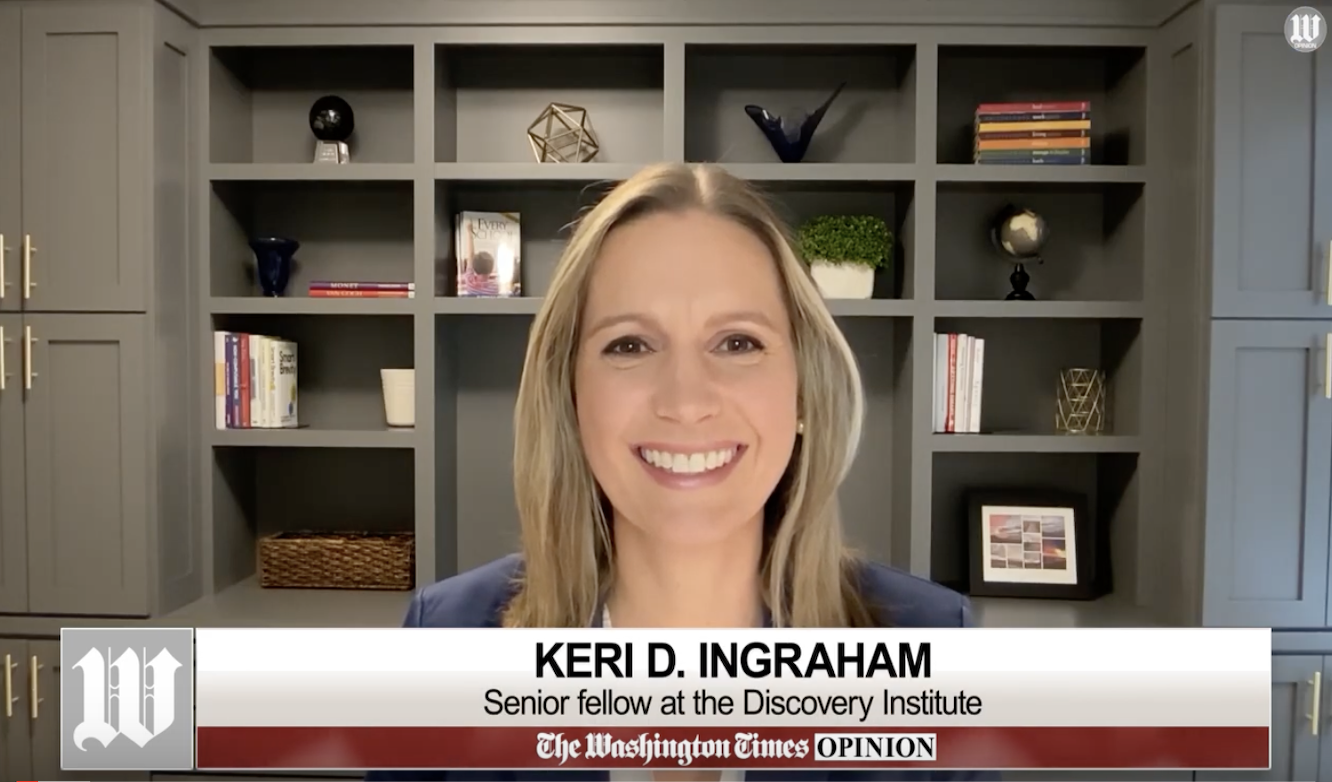


Keri D. Ingraham: College-Simulated Learning for K-12 on the Making the Leap Podcast
Chris and Christine Stigall from the Herzog Foundation interview Discovery Institute Senior Fellow and American Center for Transforming Education Director Dr. Keri D. Ingraham on the Making the Leap Podcast. The conversation discusses a school model that intentionally engages parents in their children’s education, outlined in her recently released policy brief: College-Simulated Learning for K-12.
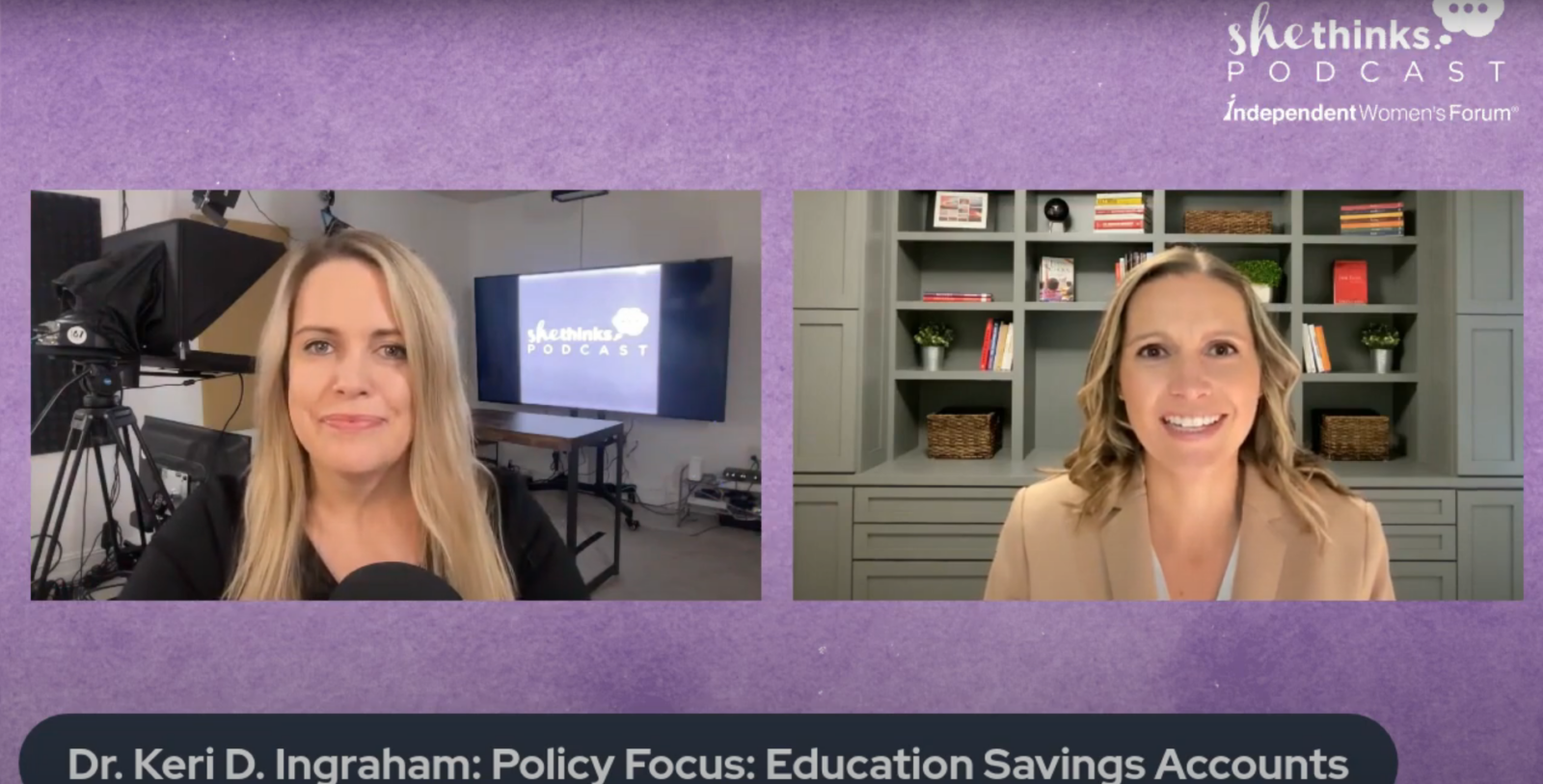
Dr. Keri D. Ingraham: Policy Focus: Education Savings Accounts | She Thinks
Discovery Institute Senior Fellow and American Center for Transforming Education Director Keri D. Ingraham joined the She Thinks Podcast to discuss her recently released Policy Focus: Education Savings Accounts.
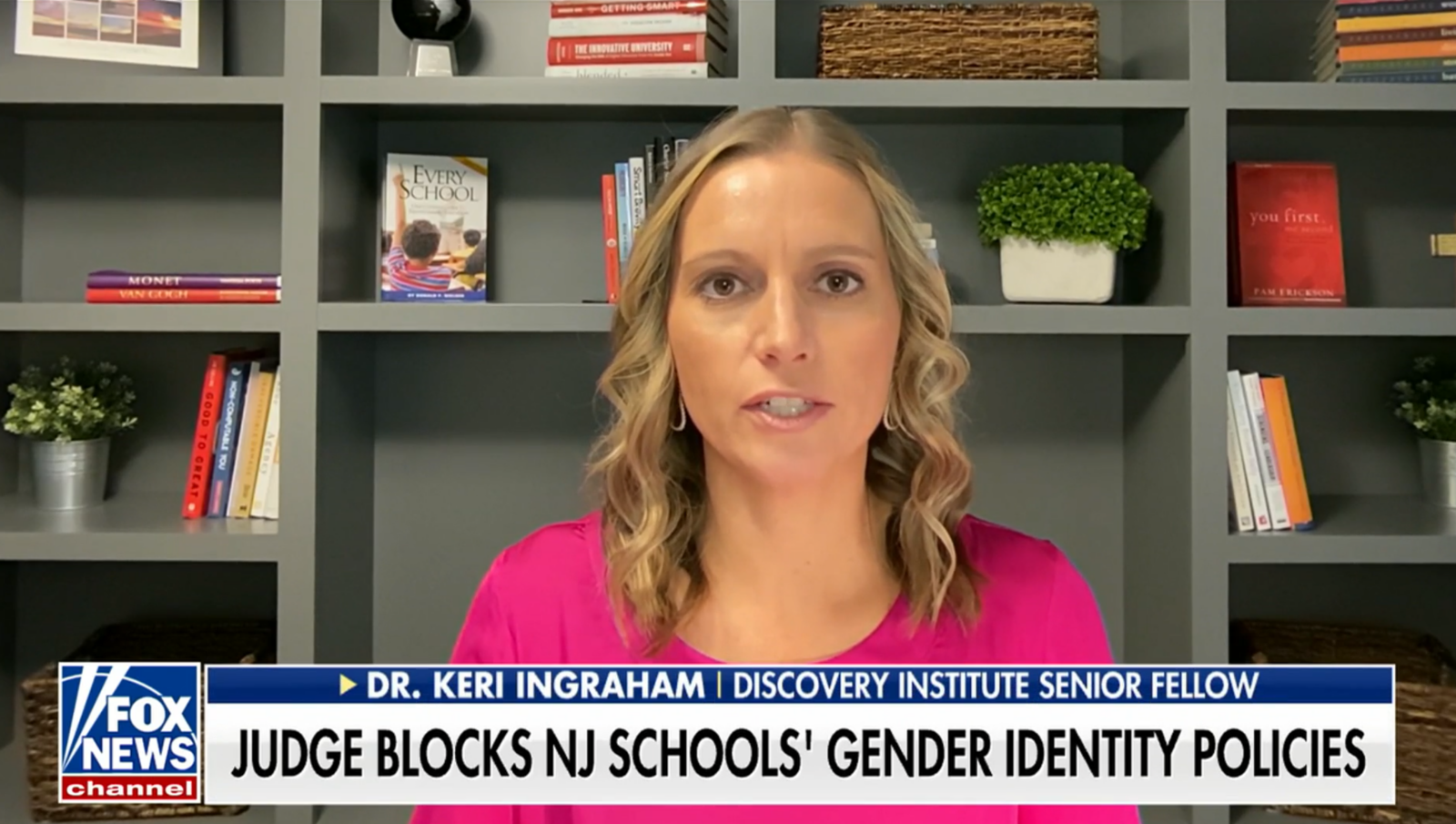
Keri Ingraham on Fox News’ Lawrence Jones Cross Country
Recently Discovery Institute Senior Fellow and American Center for Transforming Education Director Dr. Keri Ingraham was invited as a guest on Fox News’ Lawrence Jones Cross Country show to discuss the attack on parental rights taking place in K-12 public schools.
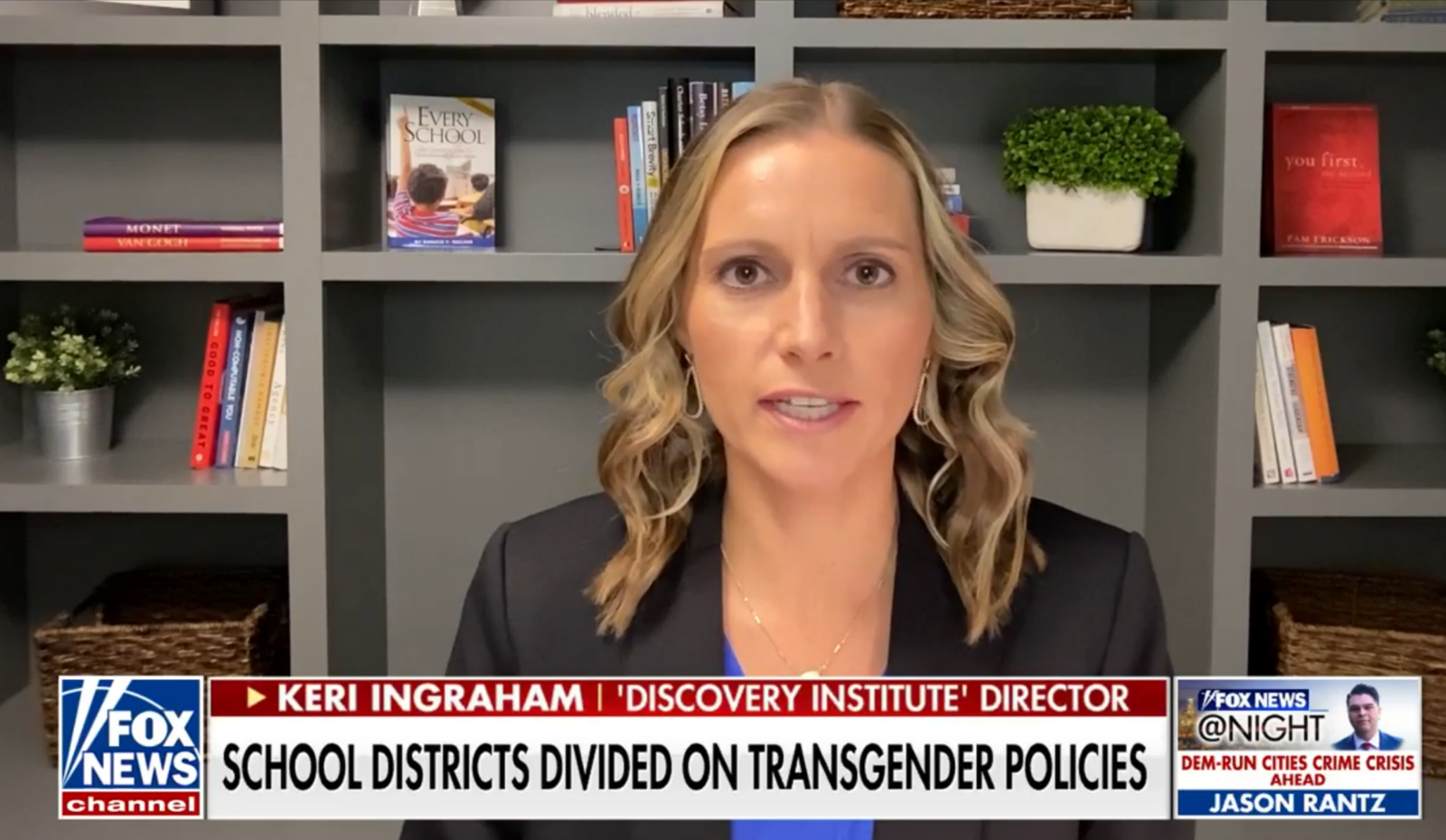
Keri Ingraham on Fox News Night with Trace Gallagher
Discovery Institute Senior Fellow and American Center for Transforming Education Director Dr. Keri Ingraham was interviewed on Fox News at Night with Trace Gallagher.
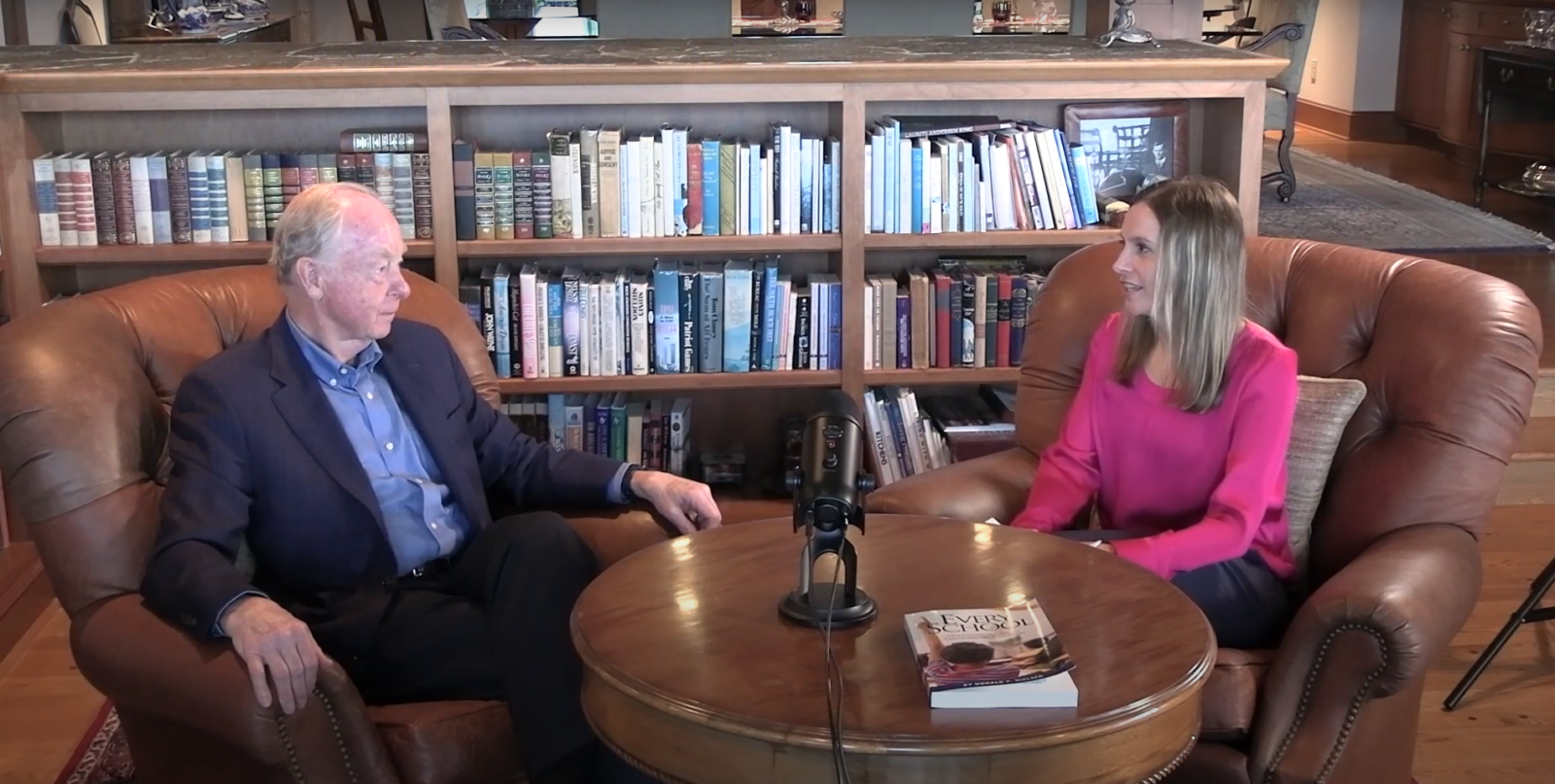
What Phone Call Did You Make Upon Retirement? Don Nielsen author of Every School
Upon retirement you placed a phone call. Who was that first phone call to, and what transpired after that?

What is Unique about Thomas Jefferson High School? Don Nielsen author of Every School
Back when you lived in Virginia, you were involved with one of the labs built at Thomas Jefferson High School, which today is the top ranking public high school in the country. Share with us what that school did that was unique.

What is the Path Forward? Don Nielsen author of Every School
What do you envision as the path forward to truly transforming K-12 education within the United States?

What Do You Think About School Choice? Don Nielsen author of Every School
Right now, school choice is expanding and gaining traction in many states throughout our nation. What are your thoughts on school choice – both inside the public system and outside the system?

Does Mission Matter in K-12? Don Nielsen author of Every School
In your book, Every School: One Citizen’s Guide to Transforming Education, you talk about the mission of the school being largely missing from the conversation. Can you expand upon that?

What Does Your Game Plan Include? Don Nielsen author of Every School
In your book, Every School: One Citizen’s Guide to Transforming Education, you outline a game plan for transforming K-12 education at the state level. What does that game plan include?

What Did You Learn in Singapore? Don Nielsen author of Every School
A few years ago Don Nielsen traveled to Singapore to see how they train and select teachers. He tells us how Singapore differs from the United States.

What Are the Key Areas of K-12? Don Nielsen author of Every School
In your book, Every School: One Citizen’s Guide to Transforming Education, you write about the need to transform three areas of K-12 education — teaching, leadership, and governance. Why those three areas?

Why Work at the State Level? Don Nielsen author of Every School
In your book, Every School: One Citizen’s Guide to Transforming Education, you talk about the need for K-12 education to be transformed at the state level. Why the state?

Why Is Parental Involvement Critical? Don Nielsen author of Every School
How do you see parental involvement being important in K-12 education?

Why Does Brain Development Matter? Don Nielsen author of Every School
In your book, Every School: One Citizen’s Guide to Transforming Education, you talk about brain development and early childhood education. Share with us more about these topics.

What Is Learning Readiness? Don Nielsen author of Every School
You often talk about student learning readiness being ignored and the need for individualized learning versus group learning, a longer school day and year, and an achievement versus time education system. Share with us about differing student learning readiness and the solutions you propose to address it.

What Did You Learn from Kindergarten Teachers? Don Nielsen author of Every School
Years ago, you had a meeting of kindergarten teachers. How did that come about, and what took place at that meeting?

What Do You Think About Teachers’ Unions? Don Nielsen author of Every School
K-12 public education is the largest employer in our country, and teachers’ unions no doubt play a powerful role. What are your thoughts about unions?

Why Develop a Leadership Institute? Don Nielsen author of Every School
Right before September 11, 2021, you were planning a very important meeting to develop a leadership institute. Share with us about that.